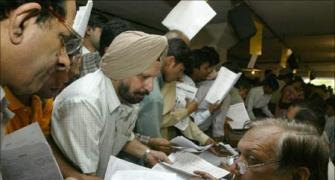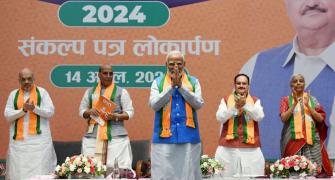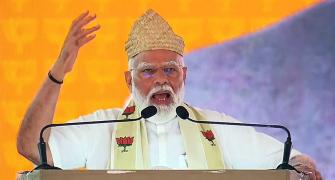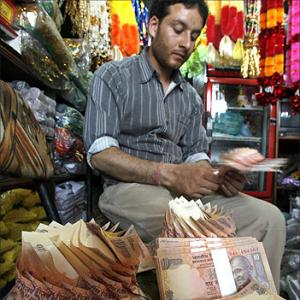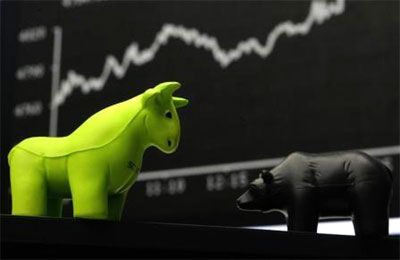 As the markets look forward to a rate cut by the Reserve Bank of India (RBI) during its monetary policy review on Tuesday, Andrew Holland, chief executive officer, Ambit Investment Advisors, tells Puneet Wadhwa he expects the central bank to slash rates by 150 basis points (bps) till end-December 2016. Though Holland remains optimistic on the road ahead for the Indian markets, he, warns that the next three months could be volatile. Excerpts:
As the markets look forward to a rate cut by the Reserve Bank of India (RBI) during its monetary policy review on Tuesday, Andrew Holland, chief executive officer, Ambit Investment Advisors, tells Puneet Wadhwa he expects the central bank to slash rates by 150 basis points (bps) till end-December 2016. Though Holland remains optimistic on the road ahead for the Indian markets, he, warns that the next three months could be volatile. Excerpts:
How do you assess the first year’s performance of the Narendra Modi government?
On foreign policy, in terms of where India was and where it now is, I think the Modi government has done a great job. He has put India back on the map globally through the ‘Make in India’ mantra. On the economic front, gross domestic product (GDP) growth is starting to improve slowly but it is not too visible at the moment.
However, I can’t give too many marks for fiscal improvement because that’s more to do with crude oil prices than anything else. But a lot of expenditure has been reigned in. The transparency in government is improving slowly.
On the other hand, tax-related issues have been a disappointment. First opening the doors and then going back on retrospective taxes hasn’t helped anybody.
Is the investor interest fading, given the slow pace of reforms?
It depends on when one became bullish. Once Modi came in, expectations were for huge reforms and then one got disappointed. We were never expecting that pace of reforms when we became bullish about India, which was in September 2013. If everything/reforms agenda goes through, that’ll be a great news for the markets. I think the Land Acquisition Bill is key. That’s because without this Bill, the ‘Make in India’ mantra will likely lose steam.
Where do you see the Nifty heading this year?
The markets will remain very volatile for the next three months, mostly on account of global factors, beside the local issues. We aren’t sure how the monsoon will be in India and we need to be watchful on that front. Globally, too, there are a number of events lined up such as issues related with Greece, an impending hike in interest rates by the US Federal Reserve, etc. So, a lot of things can keep the markets volatile. We expect the Nifty to be around 11,000 by December 2016. The rally will be a bit more back-ended next year.
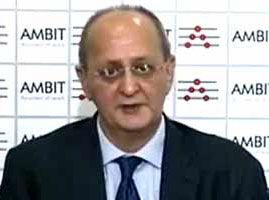 What has been your assessment of recent corporate earnings?
What has been your assessment of recent corporate earnings?
We think these have bottomed out. We didn’t have great expectations from India Inc in the recently concluded quarter and the earnings have been quite bad this time. We should see a gradual improvement starting with the current quarter. The ones we have been buying are industrials, automobile components, capital goods, industrials and banking.
What are your earnings growth estimates for FY16 and FY17?
This year, earnings growth is likely to be 10-15 per cent. I agree this is a wide range but a lot will depend on when the economy will start recovering. Once that happens, earnings should grow at 20 per cent (yearly) thereafter.
How much reduction in key rates do you expect over the next 12 months?
By end-December 2016, we expect a 150 bps reduction in interest rates.
What are your specific stock preferences?
In banking, we like the private players. In the capital goods sector, we prefer suppliers to the power and auxiliary companies like Alstom T&D, ABB, Larsen & Toubro (L&T). In automobiles, we like Maruti Suzuki, primarily because we expect the yen to depreciate significantly. The company will benefit from this, beside the new models it plans to launch. I would prefer to look at the automobile component side as well. One can look at larger mid-caps in this segment that have ample liquidity.
Foreign institutional investors have been favouring China of late instead of India. Do you see the pace of outflows from India increasing as we head deeper into 2015?
I don’t think we are seeing a huge outflow. We all get too much wrapped up in this. The markets went up to new highs at the beginning of the year and we need to justify that in terms of growth in earnings and a pick-up in the economy. So, the outflow is because the other markets seem to be more attractive on a relative basis from a short-term perspective.


